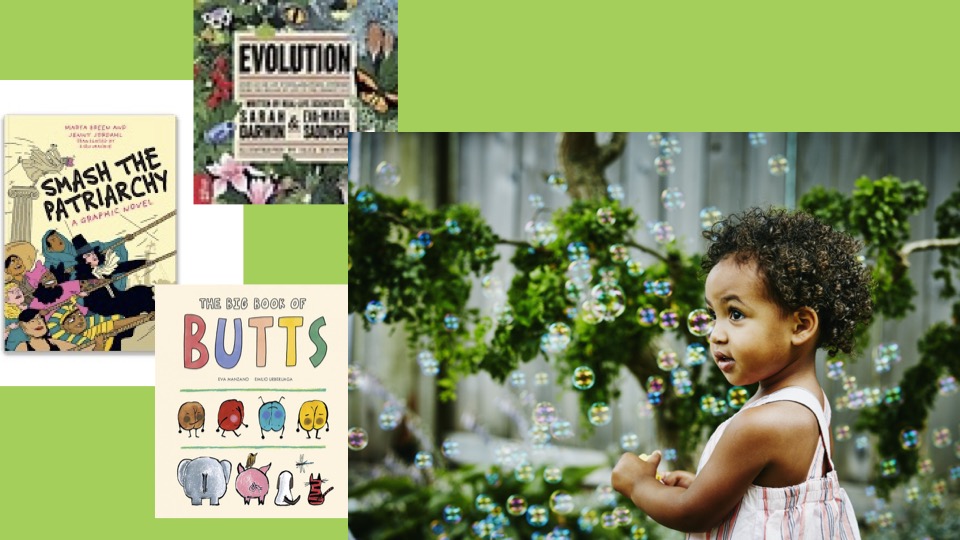This article is by Publisher Spotlight intern Journey Mathewson
Reading is fun! Reading has no limits! Reading is up to you, so no one should tell you what you can or can’t read . . . right?
Well, maybe people can tell you what to read but how do their words still affect your reading choices?
Whether it’s from rules made by parents, or judgements passed by peers, opinions can have influence what someone reads. Whether it’s from rules made by parents, or judgments passed by peers, opinions can have control over what we might read and what we think about what we read.
Young readers are not always given agency to choose exactly what they read, especially in this climate of book bans and censorship running rampant. Parents want a say in what their children should be permitted to read, even though they themselves don’t read the books or experience it in the same way their child would. Many books we represent at Publisher Spotlight, like Smash the Patriarchy from Helvetiq, a book the celebrates powerful historical women and educates on the history of the patriarchy; Evolution from What on Earth Books, a scientific overview of the how the Earth came to be; or even The Big Book of Butts from NubeOcho, a hilarious and educational tale all about different creatures’ hind quarters, could be called into question merely because a parent disagrees with the focus of the book as inappropriate in their own personal opinion. It would be easy for parents to call into question all sorts of books, but if they gave the book a chance, and learned the real story, perhaps they wouldn’t be so quick to judge. And at what point is a child given the freedom to choose what they read? To choose their own education or inspiration?

Some may choose to read books their parents disapprove of in an act of defiance. I was lucky enough to attend a school with numerous reading options, and while my parents may gasp at the notion now, I am glad to have had the freedom to read what I wanted and learn and experience new things in the process. Books like The Hunger Games by Susanne Collins and Looking for Alaska by John Green were both immensely popular and sometimes met with adult disapproval, but they are some of the books I remember most fondly.
Reading can be an opportunity to escape, self-educate, find encouragement, or take the chance to explore. But the limits aren’t always in our control, and it’s difficult to decide when to challenge them, and when to roll over. School Library Journal recently discussed a large increase in children reading graphic novels, and how some parents (in this day and age of book banning discourse) are opposed to it. For some it’s based on the content, frequently judged without seeing and reading the book as a whole. For others it’s the claim that graphic novels as a format aren’t “real books.” Manga Classics, which rewrites classic stories into graphic novel format, could be mocked or disrespected because in some parents’ eyes, it isn’t a real book. But is the child not still reading and learning classic tales? Are they inappropriate just because it is a different format than what a parent is traditionally used to? The point is everyone thinks something different!
Why spend so much time critiquing others’ reading preferences when instead we could be celebrating the imagination and wonder reading can stir in people. These arguments can often be rooted in a passion for books and wanting the best for people, other times perhaps not. Perhaps it’s time to let go of control and let everyone explore their interests without hindrance.